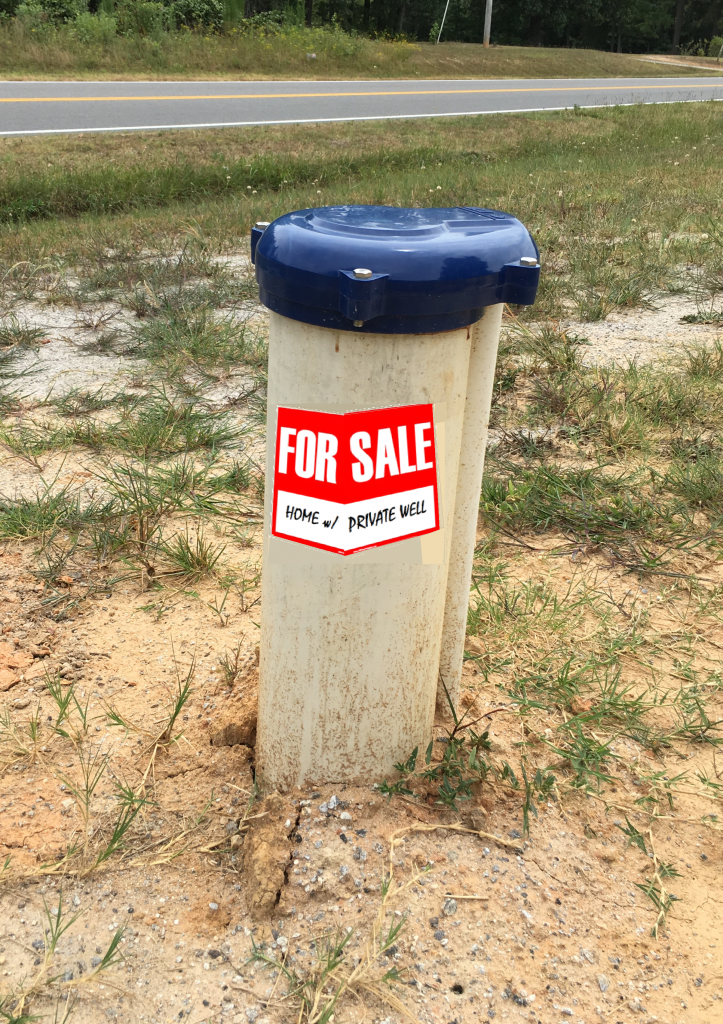
The Virginia Department of Health DOES NOT require activities in conjunction with the buying or selling of property with private wells. However, during real estate transactions involving properties with private wells, questions often arise from buyers, sellers, and lenders.
In response, the Office of Environmental Health Services is pleased to offer this FAQ sheet.
Is a well inspection required as part of a real estate transaction?
|
Virginia’s Private Well Regulations do not require a well inspection for a property transfer, and VDH is not involved in real estate transactions. However, certain localities may require a well inspection so make sure you check with your local government. Lenders also may require an inspection, in which case they will outline what is required. Real estate listing agents may suggest an inspection report as a marketing incentive.
Home inspections required by lenders may include the well. If a stand-alone well inspection is conducted, we recommend that it be performed by a licensed water well service provider. |
Is well water quality testing required as part of a real estate transaction?
|
Virginia’s Private Well Regulations do not require well water quality testing for a property transfer, and VDH is not involved in real estate transactions. However, certain localities may require well water analysis so make sure you check with your local government. Lenders also may require testing, in which case they will outline what is required. Listing agents may suggest water testing as a marketing incentive.
Many lenders require testing for bacteria, nitrate and lead at a minimum. The U.S. EPA suggests you keep in mind that these tests are generally intended to ensure that the lender is not making a loan on a property with a faulty system, in case it has to repossess the property. For this reason, lender required well tests may not be comprehensive evaluations of well water quality. |
I want to know more than the minimum required by a lender or locality. What should I test for?
How do I obtain a copy of the well record?
|
This depends. Your local VDH office maintains well records and can help you obtain a copy. What you need to know is:
- Prior to 1990, records of private wells were not required. However, they may be available if a well was already present or installed in conjunction with an onsite sewage system (this might be just a location depicted on a hand drawn sketch). Keep in mind that older records may be inconsistent with current property addresses because some addresses changed with the advent of 911 emergency systems.
- Between 1990 and 2003, private well records are paper records. Some local Health Departments have begun entering these into digital databases.
- Beginning in 2003, the Virginia Environmental Information System (VENIS) includes private well records.
Please ask your Local Health Department for your well record. They’ll be happy to assist.
Also, the current homeowner may have water testing and well maintenance records, and a well construction report, sometimes referred to as a “well log.”
Finally, since most well drillers work within a general geographic range, as a last resort you can also try to contact local drillers to determine if they have documentation. The reality is, however, that for private wells constructed in Virginia prior to 1990, written construction records may not exist. |
How do I test my water?
|
You will find the information you need on this PAGE
|
I've tested my water - do I need to report my results? If so, where?
|
Virginia’s Private Well Regulations do not require reporting of test results beyond the bacteriological examination conducted when the well is installed. Your lender or locality may require reporting and, if so, can advise you.
If you are testing as a result of a known contamination event such as a release from a home heating oil tank, it is possible that the Virginia Department of Environmental Quality may require that the results be reported to them. Find more information on contacting VDEQ here. |
What if the well water does not meet safe standards?
|
Most well water contaminants can be addressed by one or more corrective measures, including but not limited to disinfection, filtering, conditioning, softening, or other treatment. A licensed water well service provider can assist you.
Find more information here and here. |
HELPFUL LINKS
Last Updated: September 28, 2017


